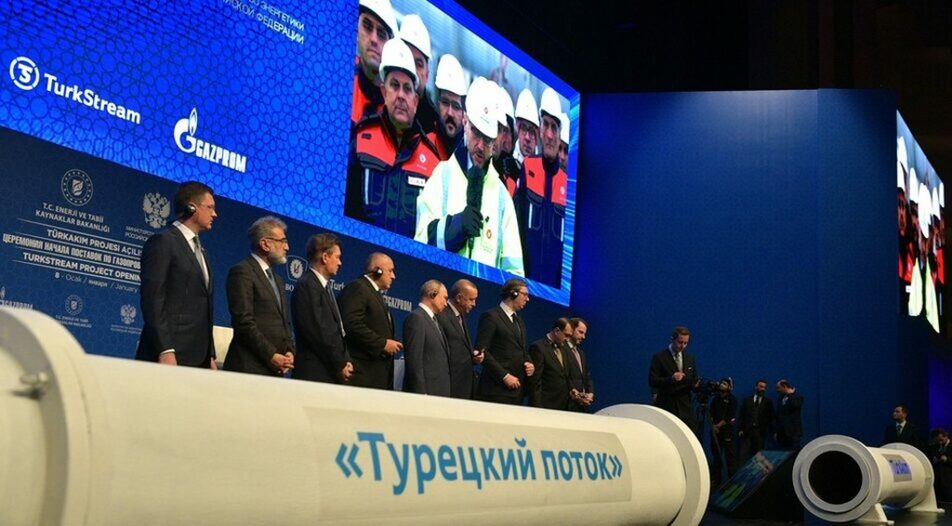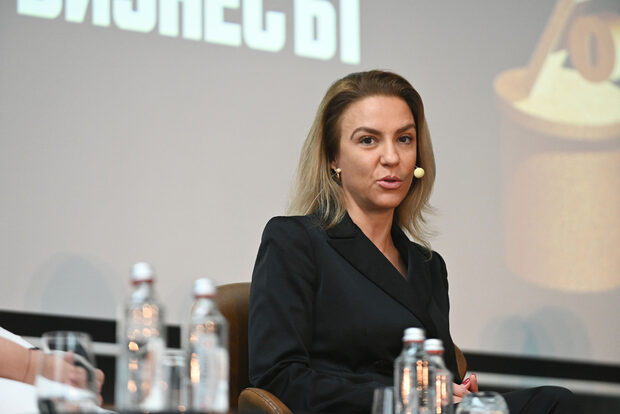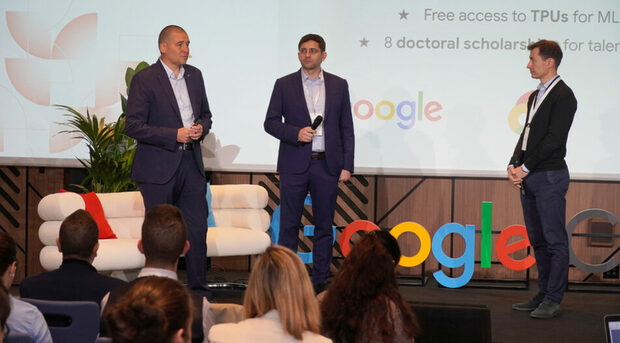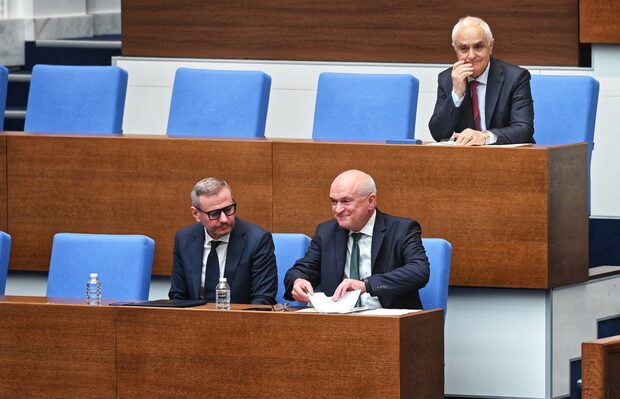The importance of stories does not lie solely in the finale. Good or bad, the ending depends on the steps that lead to it - what were they, how were they taken, who are the main players, who provides the funds and what are the consequences. Turkstream is a true story about the conquest of Bulgarian energy. The result is clear - Ukraine was strategically bypassed in terms of gas transits. And at the end of this year Russian gas will completely stop transiting through Ukrainian land, leaving the pipeline through Bulgaria as the main and largest supply route to Europe.
Going back in time shows that the plan to bypass the Ukrainian gas transmission network prefigures the Russian invasion of Ukraine. However, it is still disputed who were the main characters and where the money came from. Much of the details of how it all happened, however, are now available thanks to decoded documents from the Bulgarian online community of cyber security and anti-disinformation experts "The Elves". They are from the correspondence of Yevgeny Zobnin - assistant to the Russian politician Alexander Babakov.
In reality, the project would have been impossible without the cooperation of the Bulgarian state, which advertised it as an extension of the Balkan Stream pipe and not as a main geostrategic element of Russian foreign policy. It is also evident that the financing was ultimately provided by Gazprombank through Cypriot offshore firms.
In the previous chapter we talked about the importance of the Arkad consortium and how everything started building up once the Russians took over the company that had won the tender for the building of Turkstream. The Gazprom related consortium was ranked second due to the higher price offered. A key element of the story is that within the Russian consortium, 50% is held by Luxembourg's Completion Development, through which the Russian connection is also visible- its owners are two subsidiary companies of the giants Tubular Metallurgical Company (TMK) - TMK Holding and TMK Steel Holding .
TMK was a main instrument for the further financing of the billion leva project, although in reality it had lost the tender. The company played a major role in transferring capital from Russian financial institutions to the constructors of the pipeline, while using a complex scheme through a financing company and offshore firms.
In the end, however, the state-owned gas transmission operator Bulgartransgaz was put to pay the price and got indebted with loans.
Step by Step
The victory of the Arabs in the tender left Russians hanging and caught them by surprise during the "pro forma" tender in 2019. This was indicated by the leaks by the Russians. According to the leaked documents, the gas pipeline should have been put into operation as soon as possible - according to the 2017 Roadmap, this should happen as early as the end of 2019. Gazprom wanted the project to happen as quick as possible. Such a scenario would be way easier if they were the builder, not the Saudis invited by Boyko Borisov.
The tender hiccup led to an important deal, in which Russian President Vladimir Putin had to negotiate a payment of 77 million euros (85 million dollars at that time). According to which control of the project was transferred from Riyadh to Moscow. And soon after Arkad began to be managed by Russian representatives and signed contracts worth hundreds of millions with Russian companies, including the already mentioned Completion Development.
The change of control over Arkad is described in detail in the documents decoded by the Bulgarian elves.
The orchestra behind
The company Polarson (or "Polarson Investment System Limited") first appears in the Bulgarian public precisely thanks to the leaked documents of Zobnin. And judging by the slides drawn up by the Russians, it is also responsible for the finances of the captured Saudi consortium in Bulgaria.
On Bulgarian soil, Polarson is linked to a firm called Sintera Investment System, which is also linked to numerous Cypriot offshore companies such as Lorraine Investments Limited. Lorraine owns Sintera's shares to date. The road starts from the Cypriot offshore firms and their huge capitals that are made available by third companies or accounts in Gazprombank. In many documents the Russian bank is pointed as the main financial driving force of the project.
In many ways, the usual scheme through which Kremlin gas projects are financed works like this.
An important fact is Polarson being connected according to the Russian registers with the local company Pokrovka 40, which acts as a piggy bank for various companies and is directly connected as the owner of the Russian concern TMK, which produces the pipes for the gas pipeline in Bulgaria. It is not coincidental that the address of the TMK headquarters in Russia is precisely at 40 Pokrovka Street in Moscow.
According to the scheme outlined in Yevgeny Zobnin's emails, the grand scheme behind the project is the following: the money was given by the bank to Gazprom, distributed to Cypriot offshore companies, which then go to the Arkad consortium, and ultimately reaches Turkstream. The credit loans beneficiary was Polarson, which in turn gave out loans to the offshore companies and/or directly to Arkad.
Who pays the price
At the beginning of the project, Bulgaria paid in advance 250 million leva through Bulgartransgaz, and the remaining amount - about 2 billion leva, according to the contract with Arkad, was covered by the Russians against an annual interest rate of 4.1% and a repayment period of 10 years.
By the end of 2023, Bulgaria still owes over 300 million leva, and for the early repayment of part of the amount, Bulgartransgaz also took out a large bank loan, which has better interest rates than those under the contract with Arkad.
One of the biggest problems with the project itself is the lack of financial profitability for Bulgartransgaz and Bulgaria overall . In fact, TurkStream does not supply gas to Bulgaria and only generates revenue from transit fees paid by Gazprom. But there are also large operating costs of 131.4 million leva per year (at 2019 prices), which must again be paid by the Bulgarian side.
However, it is clear from the documents that the announced price of 2.1 billion leva was unrealistic and the Russians overcharged other costs of nearly 400 million euros (BGN 800 million) to the project. According to some sources, the additional costs were sought by the Russians due to the assets and construction costs of South Stream in the past. Some claim that GERB's leader Boyko Borissov was responsible for the lack of clarity where the South Stream money went and why the Russians gave a refund through Turkstream.
In the meantime, it seems that in order to ensure transit during the war and to be sure that it will get its money, in 2021 "Gazprom" paid ahead of schedule almost 700 million leva in transit fees to Bulgartransgaz. A large part of these funds returned to the Russian company in the form of repaid obligations for the construction of the gas pipeline.
From the leaked documents and the presence of "Polarson" as a financial distribution company, it is clear that the Kremlin fully drew up the scheme even before entering Bulgaria and building the gas pipeline. With the clear awareness that Sofia must respond to every step and if it does not, there would be severe consequences.
Although Arkad is used as a cover, Bulgaria is actually paying Russia for a gas project that will only be used by Russian companies.
The importance of stories does not lie solely in the finale. Good or bad, the ending depends on the steps that lead to it - what were they, how were they taken, who are the main players, who provides the funds and what are the consequences. Turkstream is a true story about the conquest of Bulgarian energy. The result is clear - Ukraine was strategically bypassed in terms of gas transits. And at the end of this year Russian gas will completely stop transiting through Ukrainian land, leaving the pipeline through Bulgaria as the main and largest supply route to Europe.












